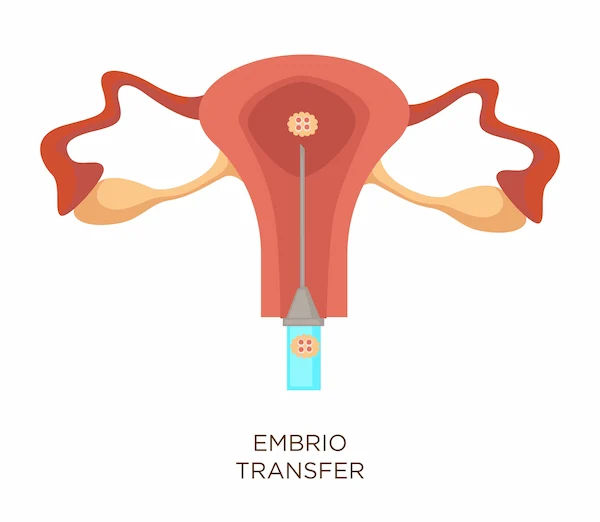How To Increase Amniotic Fluid Naturally?
Boost amniotic fluid levels naturally during pregnancy with hydration, diet, rest, and lifestyle tips. Learn safe, effective ways to support a healthy pregnancy and fetal development.

Written by Dr.Sonia Bhatt
Last updated on 3rd Jul, 2025

Introduction
Pregnancy is a beautiful journey, but it also comes with its share of concerns. One such concern is low amniotic fluid (oligohydramnios), which can affect the baby's growth and development. If you’ve been told that your amniotic fluid levels are low, don’t panic- there are natural ways to help increase it.
In this article, we’ll explore:
What amniotic fluid is and why it’s important
Causes and symptoms of low amniotic fluid
Natural ways to boost amniotic fluid levels
When to seek medical help
What Is Amniotic Fluid and Why Is It Important?
Amniotic fluid is the protective liquid that surrounds your baby in the womb. It plays several crucial roles:
Cushions the baby from external pressure
Helps in lung and digestive system development (baby "breathes" and swallows the fluid)
Maintains a stable temperature
Allows movement, which is essential for muscle and bone growth
Low amniotic fluid can sometimes lead to complications like restricted growth, preterm birth, or umbilical cord compression. That’s why maintaining healthy levels is essential.
What Causes Low Amniotic Fluid?
Several factors can contribute to low amniotic fluid, including:
Dehydration: Not drinking enough water can reduce fluid levels.
Placental problems: If the placenta isn’t functioning well, it may not supply enough nutrients and fluids.
Leaking amniotic fluid: A small tear in the amniotic sac can cause slow leakage.
Certain medications: Some drugs (like ACE inhibitors) can affect fluid levels.
Health conditions: Diabetes, high blood pressure, or preeclampsia may contribute.
Post-term pregnancy: Fluid levels naturally decrease after 40 weeks.
If your doctor detects low amniotic fluid, they may monitor you closely or suggest treatments like amnioinfusion (adding fluid artificially). However, there are also natural ways to help increase it.
Consult Top Gynecologists
How to Increase Amniotic Fluid Naturally?
Maintaining healthy amniotic fluid levels during pregnancy is important for your baby’s development, and there are several natural methods that may help boost fluid levels safely.
1. Stay Hydrated
The simplest and most effective way to boost amniotic fluid is by drinking plenty of water. Dehydration can reduce fluid levels, so aim for 8-10 glasses a day. You can also include:
Coconut water (rich in electrolytes)
Fresh fruit juices (like watermelon or cucumber juice)
Herbal teas (avoid caffeine)
2. Eat Water-Rich Foods
Incorporate hydrating foods into your diet, such as:
Watermelon, cucumbers, oranges, and strawberries
Soups and broths (homemade, low-sodium)
Leafy greens (spinach, lettuce)
3. Rest and Avoid Overexertion
Excessive physical activity can sometimes reduce amniotic fluid. Take breaks, elevate your feet, and avoid standing for long periods.
4. Monitor Your Baby’s Movements
If you notice reduced fetal movements, inform your doctor immediately. Keeping track of kicks can help detect any issues early.
5. Avoid Alcohol and Caffeine
Both can contribute to dehydration and may affect amniotic fluid levels. Opt for decaf or herbal alternatives.
6. Try Prenatal Yoga & Light Exercises
Gentle movements can improve circulation, which may help with amniotic fluid production. Avoid strenuous workouts.
7. Get Enough Sleep
Proper rest supports overall pregnancy health, including fluid balance. Aim for 7-9 hours of sleep daily.
8. Consider Acupuncture (Under Professional Guidance)
Some studies suggest acupuncture may improve blood flow to the uterus, potentially aiding fluid levels. Always consult your doctor first.
When to See a Doctor?
While natural methods can help, medical intervention may be necessary if:
You notice fluid leakage (a constant trickle)
Baby’s movements decrease significantly
You experience dizziness, extreme thirst, or reduced urine output (signs of dehydration)
Your doctor may recommend:
Ultrasound monitoring
Amnioinfusion (adding fluid medically)
Early delivery (if the baby is at risk)
Conclusion
Low amniotic fluid can be concerning, but many women successfully manage it with hydration, a balanced diet, and proper rest. Always follow your doctor’s advice and attend regular check-ups.
If you’re worried about your amniotic fluid levels, consult a specialist on Apollo 24|7 for personalized guidance. You can easily book an appointment or schedule an ultrasound through the app.
Consult Top Gynecologists
Consult Top Gynecologists

Dr. Veena H
Obstetrician and Gynaecologist
16 Years • MBBS DGO
Bangalore
Apollo 24|7 Clinic - Karnataka, Bangalore

Dr Swatika Kumari
Obstetrician and Gynaecologist
19 Years • MBBS, DGO, DNB Obstetrics & Gynaecology
Nashik
Apollo 24|7 Clinic - Maharashtra, Nashik

Dr. Priyanka Surisetty
Obstetrician and Gynaecologist
8 Years • MBBS, DGO
Visakhapatnam
Apollo 24|7 Clinic - Andhra Pradesh, Visakhapatnam

Dr. Mona Yadav
Obstetrician and Gynaecologist
19 Years • MBBS, MD (Obstetrics & Gynaecology)
Dombivli
Nulife multispeciality, Dombivli

Dr. Asha Rani Singh
Obstetrician and Gynaecologist
24 Years • MBBS DGO
Delhi
Dr Asha Rani Singh Clinic, Delhi
Consult Top Gynecologists

Dr. Veena H
Obstetrician and Gynaecologist
16 Years • MBBS DGO
Bangalore
Apollo 24|7 Clinic - Karnataka, Bangalore

Dr Swatika Kumari
Obstetrician and Gynaecologist
19 Years • MBBS, DGO, DNB Obstetrics & Gynaecology
Nashik
Apollo 24|7 Clinic - Maharashtra, Nashik

Dr. Priyanka Surisetty
Obstetrician and Gynaecologist
8 Years • MBBS, DGO
Visakhapatnam
Apollo 24|7 Clinic - Andhra Pradesh, Visakhapatnam

Dr. Mona Yadav
Obstetrician and Gynaecologist
19 Years • MBBS, MD (Obstetrics & Gynaecology)
Dombivli
Nulife multispeciality, Dombivli

Dr. Asha Rani Singh
Obstetrician and Gynaecologist
24 Years • MBBS DGO
Delhi
Dr Asha Rani Singh Clinic, Delhi
